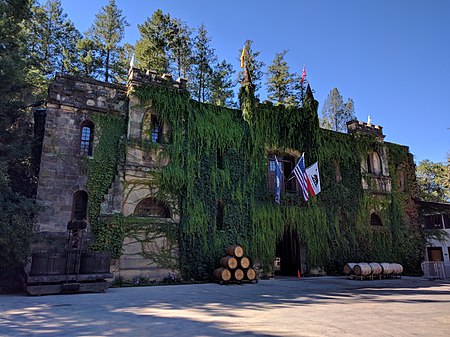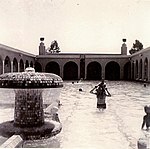Chateau Montelena
1882 establishments in California1970s in CaliforniaAmerican companies established in 1882Companies based in Napa County, CaliforniaFood and drink companies established in 1882 ... and 6 more
History of the San Francisco Bay AreaHistory of wineNational Register of Historic Places in Napa County, CaliforniaUse mdy dates from April 2021Wineries in CaliforniaWineries in Napa Valley

Chateau Montelena is a Napa Valley winery most famous for winning the white wine section of the historic "Judgment of Paris" wine competition. Chateau Montelena's Chardonnay was in competition with nine other wines from France and California under blind tasting. All 11 judges awarded their top scores to either the Chardonnays from Chateau Montelena or Chalone Winery, another California wine producer. A fictionalized version of Chateau Montelena's historic victory was featured in the 2008 film Bottle Shock.
Excerpt from the Wikipedia article Chateau Montelena (License: CC BY-SA 3.0, Authors, Images).Chateau Montelena
Tubbs Lane,
Geographical coordinates (GPS) Address Nearby Places Show on map
Geographical coordinates (GPS)
| Latitude | Longitude |
|---|---|
| N 38.6025182 ° | E -122.59991 ° |
Address
Tubbs Lane
Tubbs Lane
94515
California, United States
Open on Google Maps








